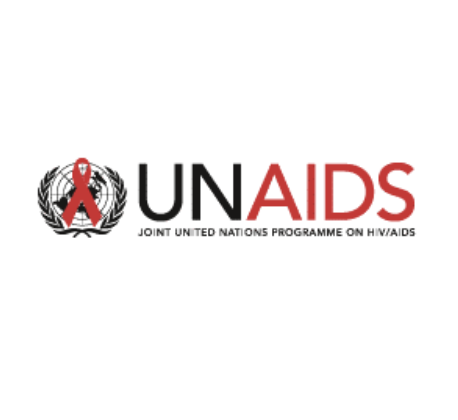This report, On the Fast-Track to end the AIDS epidemic, shows that the progress made over the past 15 years could be lost and urges all partners to concentrate their efforts to increase investments to ensure that the global AIDS epidemic is ended as a public health threat by 2030.
Stronger Together
Invest In Advocacy
A updated UNAIDS Strategy is available for review and comment between now and 18 August
UNAIDS wants to hear from you!
The updated Strategy emphasizes the Fast Track approach -- that with all the evidence in hand of what works, the world must now commit to (and finance) accelerated scale up of treatment, prevention and human rights programming to drive down HIV infection, mortality and stigma.
What will it take to achieve the financing, ambition, legal changes, anti-stigma efforts, and the more equitable approach that is needed? The Strategy draft includes new targets, an analysis by region, core actions for UNAIDS, and ideas for partnership.
Review the draft Strategy here: http://www.unaidsstrategy2021.org/
And send your comments to: strategydevelopment@unaids.org
Understanding Fast-Track Accelerating Action To End the AIDS Epidemic By 2013
WE CAN END THE AIDS EPIDEMIC BY 2030
Impressive advances in science, accumulated implementation experience, political commitments, community activism, human rights advances, global solidarity and attendant resources have offered us an historic opportunity to end the AIDS epidemic as a public health threat by 2030.
The Fast-Track approach is an agenda for quickening the pace of implementation, focus and change at the global, regional, country, province, district and city levels. It involves setting ambitious targets and accelerating the delivery of high-impact HIV prevention and treatment services. It means using innovation to expand services, to better address people’s needs and perspectives and focus on the locations and populations with the highest HIV burden. It addresses social and legal barriers and advances human rights and gender equality.
The Full Report of the Regional Consultation on the UNAIDS Strategy 2016-2021: East and Southern Africa
The consultation was welcomed by participants and the opportunity to make input to the UNAIDS Strategy 2016-2021 was appreciated. The discussions were robust, thoughtful and direct. The region has a clear view of its priorities, and the directions it needs to go. There was a depth of experience from different perspectives of the HIV epidemic, that currently characterizes the region: it knows its epidemic, knows what drives it, has lived and worked with it for decades and knows what works, doesn’t expect any ‘quick fixes’, but is also quick to recognize changes in situation, circumstance and epidemiological reality, and respond to them. There is a strong sense that the region will emerge better at the end of AIDS.
Final Report of the Eastern and Southern Africa Regional Consultation on the UNAIDS Strategy 2016 – 2021
Report of the Eastern and Southern Africa Regional Consultation on the UNAIDS Strategy 2016 – 2021
The consultation comprised a number of elements, clustered round a one-day Consultation held in Johannesburg on 23rd March 2015. These were:
- Wide dissemination of the UNAIDS Discussion Paper “Getting to Zero: How will we Fast-Track the Response?” in the region; this formed the basic platform for all elements of the regional consultation;
- Three constituency-specific consultations: an e-survey of civil society, a Human Rights and Social Justice Eastern and Southern Africa regional consultation, and Eastern and Southern Africa Regional Treatment Forum.
- The International Disability and Development Consortium (IDDC) submitted a draft discussion paper with regard to the pressing need for the better inclusion of people with disabilities.
- The One-day Consultation: this used plenary and group discussions to elicit answers to the five questions from the UNAIDS Discussion Paper across seven themes identified as critical for the region: Prevention, Treatment, eMTCT, Human Rights and Social Justice, Gender, Community Engagement, Political Commitment and Sustainability. In addition a High Level Ministerial Panel deliberated through the day and presented a High Level Political Agenda.
One hundred and seventeen (117) participants from across the region attended the one-day consultation. There were from governments and programmes, civil society, communities, academia, and the UN family. In addition a High Level Ministerial Panel deliberated through the day and presented a High Level Political Agenda.
RIATT-ESA gave input into global consultation for the developing of the UNAIDS HIV strategy 2016-2021. Click here to read RIATT-ESA's input.
A UNAIDS–Lancet Commission on Defeating AIDS—Advancing Global Health
Here is a new report from the UNAIDS Lancet Commission on Defeating AIDS. It is a call for urgently scaling up access to HIV treatment and prevention, taking determined action to advance human rights, and reaching all those populations most at risk. The report finds that countries most affected by HIV must focus on stopping new HIV infections and expanding access to antiretroviral treatment or risk the epidemic rebounding; and offers seven recommendations.
RIATT-ESA feedback on UNAIDS HIV Strategy 2016-2021
RIATT ESA feedback on UNAIDS virtual consultation final.pdf
RIATT-ESA's input into global consultation for the developing of the UNAIDS HIV strategy 2016-2021.








